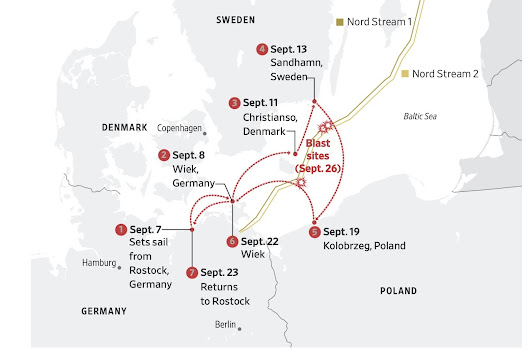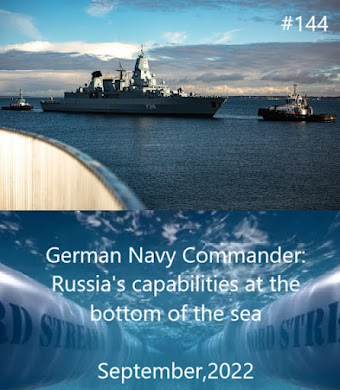- The principle of collective defence is enshrined in Article 5 of the North Atlantic Treaty.
- Collective defence means that an attack against one Ally is considered as an attack against all Allies.
- NATO invoked Article 5 for the first and only time in its history after the 9/11 terrorist attacks against the United States.
“The Parties agree that an armed attack against one or more of them in Europe or North America shall be considered an attack against them all and consequently they agree that, if such an armed attack occurs, each of them, in exercise of the right of individual or collective self-defence recognized by Article 51 of the Charter of the United Nations, will assist the Party or Parties so attacked by taking forthwith, individually and in concert with the other Parties, such action as it deems necessary, including the use of armed force, to restore and maintain the security of the North Atlantic area.
Any such armed attack and all measures taken as a result thereof shall immediately be reported to the Security Council. Such measures shall be terminated when the Security Council has taken the measures necessary to restore and maintain international peace and security.”
This article is complemented by Article 6, which stipulates:
Article 6
“For the purpose of Article 5, an armed attack on one or more of the Parties is deemed to include an armed attack:
- on the territory of any of the Parties in Europe or North America, on the Algerian Departments of France 2, on the territory of Turkey or on the Islands under the jurisdiction of any of the Parties in the North Atlantic area north of the Tropic of Cancer;
- on the forces, vessels, or aircraft of any of the Parties, when in or over these territories or any other area in Europe in which occupation forces of any of the Parties were stationed on the date when the Treaty entered into force or the Mediterranean Sea or the North Atlantic area north of the Tropic of Cancer.”
Invocation of Article 5
The 9/11 terrorist attacks
On the evening of 12 September 2001, less than 24 hours after the attacks, the Allies invoked the principle of Article 5. Then NATO Secretary General Lord Robertson subsequently informed the Secretary-General of the United Nations of the Alliance's decision.
Ownership and jurisdiction:
- Based on maritime law pipelines are under the flag of the state who owns them. In case of Nordstream AG it is 51% Gazprom and 49% EU companies fro Germany, Austria, France and Netherlands. The ownership of Nordstream 2 AG is fully under Gazprom which is a publicly listed company in which the Russian state has majority stake of 51%.
Political and strategic motives - the definition of the event: - The determination of whether the action constitutes sabotage, a terrorist act, or an armed attack would depend on legal analysis and interpretation, as well as diplomatic negotiations between the affected parties.
- Sabotage: Sabotage generally refers to the deliberate destruction or disruption of property, machinery, or equipment to hinder or damage operations. If the attack on Nord Stream AG and Nord Stream 2 AG involves damaging infrastructure, facilities, or equipment with the intent to disrupt their operations, it could be classified as sabotage.
- Terrorist Act: A terrorist act typically involves violence or intimidation carried out with political or ideological motives to instill fear or achieve certain objectives. While the term "terrorism" often connotes non-state actors, state-sponsored terrorism is also recognized. If the covert operation is conducted with the aim of causing fear or intimidating the population or the government of the target country (Russia or Germany, in this case), it could potentially be classified as a terrorist act.
- Armed Attack: Under international law, an armed attack typically refers to the use of force by one state against another state, which may trigger the right of self-defense under Article 51 of the United Nations Charter. Whether the covert operation against Nord Stream AG and Nord Stream 2 AG would rise to the level of an armed attack would depend on the scale, nature, and consequences of the operation. If the attack results in significant damage or casualties and is conducted with military force, it could be considered an armed attack.
1. Attack on a Swiss Company:
- Both Nordstream AG and Nordstream 2 AG are enlisted in Switzerland hence attack against these is de jure an attack against two of its companies. An attack on the company itself could be viewed as an attack on a Swiss entity. In this scenario, Swiss laws and international conventions related to the protection of businesses and property could apply.
2. Attack on Shareholder Companies:- If the attack were specifically targeting the interests of the shareholder companies (such as Gazprom, Wintershall Dea, Uniper SE, OMV, Engie, or Royal Dutch Shell), the legal implications would involve the laws and jurisdictions of those respective countries. It could potentially be considered an attack on the economic interests of those countries.
3. Attack on the State: - Whether an attack on Nord Stream AG or its shareholder companies would be considered an attack on a state would depend on the circumstances and the interpretation of international law.
If the attack were deemed to have political or geopolitical motives, it could be perceived as an attack on the interests of the states where the shareholder companies are based. However, determining whether it constitutes an attack on the state itself would likely involve complex legal and diplomatic considerations.
The NATO dog that did not bark
- IF the attack would have been done by Russia then the NATO Article 5 could have been theoretically triggered despite legal the ownership under assumption that the attack was against EU citizens to worsen their economical well-being in order to press their politicians from supporting Ukraine and making a deal with Russia.
- IF Russia attacked its own pipeline then the insurance payment is void (No payment occurs in two instances: self-sabotage clause and a war clause). IF Russia attacked its own pipelines with the intent and motive to impose economical burden against European countries and its citizens, then Russia could be framed as a state supporting terrorism and its frozen sovereign assets could be used for healing damages of EU citizens and states.
- IF the attack would have been done by Ukraine then the NATO Article 5 could have been theoretically also triggered as an attack on member states by a non-nato state.
- IF the attack was done by a non-state entity it would be very likely defined as a terrorist act.
Inverse considerations
- When the 9/11 happened the NATO had immediately a meeting and the very next day the Article 5 was invoked.
NATO meetings in news from 26 September 2022 when Nordstream pipelines were attacked onward:
NATO statement about Nordstream
Here is a list of known official statements by Prime ministers, Presidents, Foreign ministers and other high level politicians from the time of the event. It is important to look at who was pushing forward the claim that it was a sabotage and who was hesitant.
Article 5 has NOT been triggered, which means that Russian involvement has been ruled out from day one. This also means that Ukrainian involvement was ruled out from the outset. The definition of the event as a "sabotage" by NATO and other politicians means that a terrorist act by a non-state entity has been also excluded.
It is safe to conclude that the identity, motives and purpose of the event were known to top level officials from early on.
The joint statement by NATO members on 29 September that any (retaliatory, further) attack by Russia on its infrastructure would be met with the triggering of Article 5. This is in direct contradiction to the definition of the event as "sabotage". Would sabotage of another European pipeline with similar ownership be met with a different response?
Additional info added on 27-08-2024
1 Oct 2022 - Nord Stream Sabotage: The “Hybrid War” Has Well and Truly Begun,
"... The North Atlantic Council issued a statement on September 29 stating that any deliberate attack on the alliance's critical infrastructure will require a united and determined response. But NATO faces a major problem: the burden of proof. If we want to respond to a deliberate attack, we must demonstrate who is behind it..."
SUMMARY:
The NATO basically publicly states that one of their member has attacked Nordstream pipelines and is warning against retaliatory actions.
***
***
Uncovering the truth took over two years of self-funded, tireless investigation.
I decided to open it for free, no paywall, despite huge investment.
Because the truth matters.
Please consider supporting my work with a donation.

Every bit helps keep this mission alive!
(retweet and follow)































